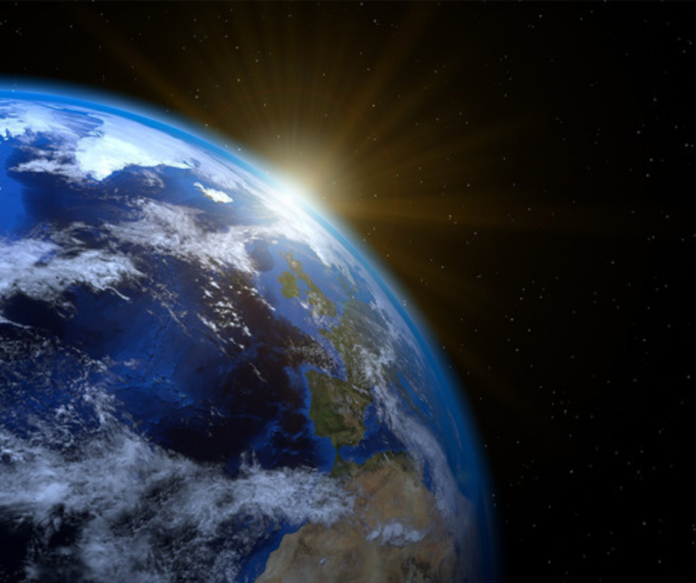If man is asked today, ‘What is the greatest contribution to mankind?’
Stakes are high that he’ll present a long list of inventions, architectural structures, discoveries, advancement in science and technology to reaching the moon, wars fought and won by men and the list goes on and on.
But if one is to go beyond what is visible to the naked eye and delve deeper, we can appreciate that one historical event that changed the world is the presence of “life” on earth.
Life is a thought-provoking complex four-letter word. It generates equal amazement amongst both the young and old. Its admiration can be attributed to the fact that it is beyond the control of human beings. The Oxford dictionary defines life as the functional activity and continual change preceding death.
Since the inception of civilisation on this planet, man is trying to solve the mystery of life and death which continues to scramble human mind even today. This resulted in the formation of three schools of knowledge namely, philosophy, religion and modern-day science. All of them have varied interpretations to the origin of life. While philosophy and religion remain agnostic to the presence of other world, science rejects the supernatural by restricting itself to the domain of this world.
The complexity of life can’t be captured in writing or pictures. The process that binds the smallest of insects to the largest of mammals makes the earth a place worth living.
According to Hindu tradition, ‘dharma’ is needed to sustain the earth. Dharma has been conceptualised differently over the years. One common understanding goes that anything that establishes balance on earth helps contribute to its longevity- the presence of day and night, good and bad, ugly and beautiful, hot and cold, calmness and aggression maintain and sustain equilibrium.
The creation of nature is beyond the capacity of man. This is what makes it by far the most distinct and historical wonder that changed the cosmos.
In this modern world, workaholics are kept in high regard across the establishments. But this culture has reduced man to a mechanical living. Nowadays, routines are restricted to 9 hour shifts which translates into wages needed for sustenance. Today, money is the most prized commodity without realising that it was created as a means to reach the ends of life.
Rationality of man is highly prized in the industrialised world. But this meant carrying a certain baggage everywhere you go – from sleep deprived individuals, in constant stress and the fear to be knocked out at every step. As we continue to play rhetoric with our body and soul, we miss out on important milestones of life- to cherish happiness. This has led to the rise of lifestyle disorders like increase in PCOD, cancer, heart attacks, diabetes at younger age.
According to a recent survey conducted by IDF Diabetes Atlas, India has one in six people with diabetes in the world. This places the country among the top 10 countries for people with diabetes, coming in at number two with an estimated 77 million diabetics. Another study conducted by ICMR India State-Level Disease Burden titled “India: Health of the Nation’s States” has estimated proportion of all deaths due to Non-Communicable Diseases (NCDs) has increased from 37.09% in 1990 to 61.8% in 2016.
Lifestyle disorders are a result of unhealthy eating habits, stressful lifestyle, and reduced physical activity. During the pandemic, these vulnerabilities were exposed as the nation saw the rise of anxiety and depression cases across cities and towns.
While it is imperative to switch to a healthier lifestyle, it is also equally important to protect ourselves and our family with introspection. Life is a destined gift given to us which is to be celebrated every moment. The recent international bestseller ‘Ikigai’ talks about the Japanese secret to a long and happy life. The book is the study of the centenarians of the island of Okinawa. Research indicates that they not only live much longer than the rest of the world’s population but they also suffer from few chronic illnesses such as cancer and heart disease. The research goes on to point out that this can be attributed to their diet rich in vegetables and limited consumption of meat products. In addition, their philosophy of Ikigai of close-knit group of friends plays and important role in their longevity. Another important part of their routine involves meditation. Achieving state of mindfulness helps in filtering the information that reaches us from the outside world. It can also be achieved through breathing exercises and yoga.
Thus, what is needed is the correct balance. The manifestation of life in the deepness of ocean to the tallness of mountains, from the farthest desert to dense forests is thought provoking. It stands as a reflection of the futility of 21st century man in front of the fury of nature.
Nature is intriguing- it is both the creator and destroyer. Even today, it generates awe and wonder among its listeners.










